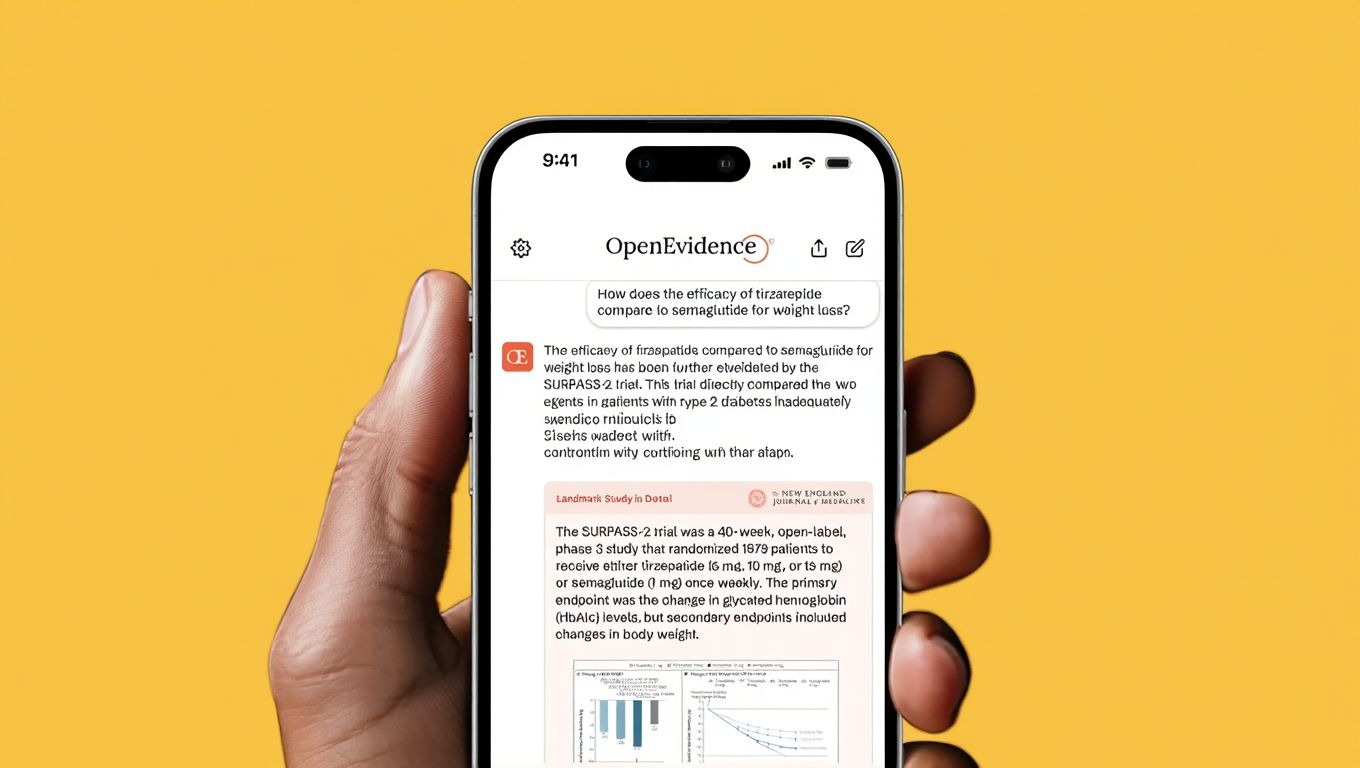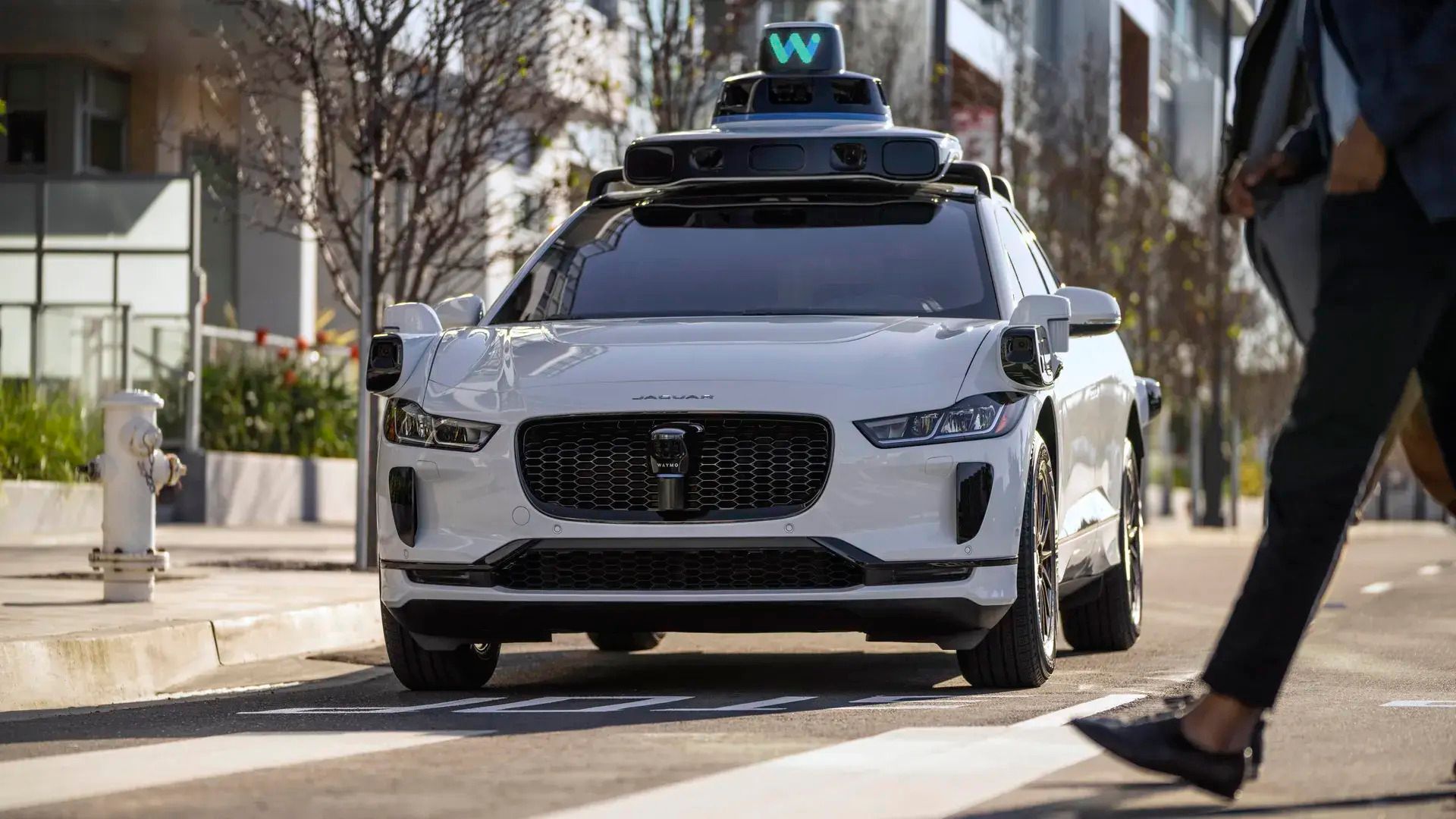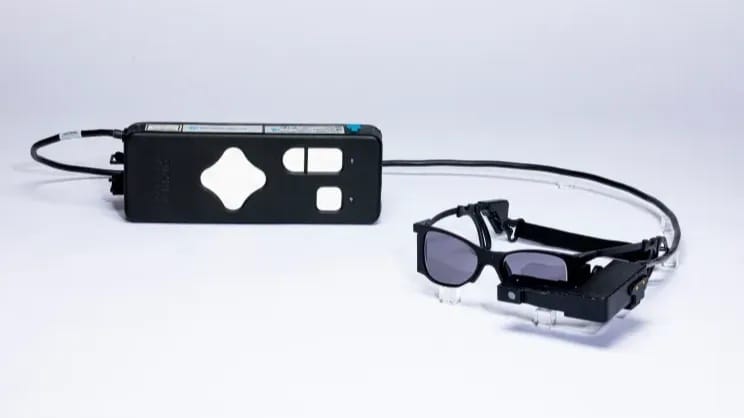'ChatGPT for doctors' hits $6B
PLUS: The day Amazon almost broke the internet
Read Online | Sign Up | Advertise
Good morning, tech enthusiasts. OpenEvidence just hit a $6B valuation — nearly doubling in three months — as its clinical AI becomes medicine’s new brain trust.
Trained solely on peer-reviewed journals, it’s already in use by 40% of U.S. doctors. Now, this Miami startup aims to build the first true medical superintelligence.
In today’s tech rundown:
‘ChatGPT for doctors’ hits $6B valuation
Amazon nearly breaks the internet
Waymo under fire for school bus incident
Smart glasses help blind patients see
Quick hits on other tech news
LATEST DEVELOPMENTS
OPENEVIDENCE
🩺 ‘ChatGPT for doctors’ hits $6B valuation

Image source: Reve / OpenEvidence
The Rundown: OpenEvidence — the so-called “ChatGPT for doctors” — just pulled off a stunning leap in valuation, raising $200M at a $6B valuation just three months after its previous round pegged it at $3.5B.
The details:
The Miami-based startup has built a clinical AI, now used by over 40% of U.S. doctors and more than 10K hospitals for rapid, evidence-backed answers.
Its AI is trained exclusively on peer-reviewed medical literature from journals like NEJM and JAMA to deliver fully sourced, evidence-based answers.
Founded by Harvard-trained economist Daniel Nadler, OpenEvidence has drawn comparisons to Google Search — but for medicine.
The platform conducts millions of consultations monthly, synthesizing data from 35M medical papers; an ad-supported model keeps it free for doctors.
Why it matters: The company’s $6B leap in under a year shows where investor conviction seems to be heading: AI tailored for high-stakes, professional use over generalist chatbots. When your product becomes the default in life-or-death decisions, you’re defining what trusted machine intelligence really means.
AMAZON
☄️ Amazon nearly breaks the internet

Image source: Reve / The Rundown
The Rundown: An obscure glitch buried deep in Amazon Web Services' DynamoDB database triggered one of this year’s most sweeping internet blackouts Monday, taking down everything from Slack and Zoom to financial trading platforms.
The details:
By Monday evening, roughly 15 hours after the chaos began, AWS said it had resolved the crisis, though some customers continued reporting problems.
The malfunction traced back to a DNS resolution error in AWS’s Northern Virginia data center, which powers a staggering portion of the internet.
Slack, Zoom, Signal, WhatsApp, Snapchat, Reddit, Fortnite, Coinbase, Delta, Perplexity, and The New York Times, among others, all went dark or degraded.
Services that don’t even use DynamoDB went down too, in a cascading failure that exposed just how tightly wired AWS’s infrastructure really is.
Why it matters: AWS controls 30% of the cloud market — but on Monday, a single DNS glitch in one Virginia data center triggered global chaos, reportedly costing hundreds of billions of dollars. The outage showed just how quickly a single misstep in a data-center control layer can ripple across the world.
WAYMO
🚍 Waymo under fire for school bus incident

Image source: Waymo
The Rundown: Federal regulators launched a probe into Waymo after one of its fully driverless robotaxis was caught overtaking a stopped school bus unloading children in Atlanta — a move that would earn a human driver a $1K fine.
The details:
The NHTSA says it’s reviewing the performance of about 2K Waymo robotaxis equipped with the company’s fifth‑gen autonomous driving system.
Footage shows the robotaxi approaching from a side street and then driving around the school bus, despite an extended stop sign and flashing red lights.
The bus, Waymo says, was partially blocking a driveway exit, and the vehicle’s sensors couldn’t detect the warning signals due to obstruction.
It’s the third NHTSA investigation into Waymo’s software in under two years, and regulators warn the likelihood of similar events is “high.”
Why it matters: The case piles fresh scrutiny on Alphabet’s autonomous driving arm, which has logged more than 10M driverless rides and is currently expanding to new markets, including Washington, D.C., and Miami. Waymo insists safety is its top priority and says it has already rolled out an update to better handle school bus scenarios.
TECH FOR GOOD
👓 Smart glasses help blind patients see

Image source: Science Corporation
The Rundown: Several dozen people blinded by macular degeneration just got a digital assist: a microscopic eye implant linked to AI-powered smart glasses that literally beams vision back into the brain.
The details:
A new study in The New England Journal of Medicine found the system restored sight to patients with advanced age-related macular degeneration.
In the trial of 38 patients, 80% regained the ability to recognize shapes, letters, and words; some could even read and complete crossword puzzles.
The implant, a mere 2mm chip, converts infrared light into electrical signals that stimulate surviving retinal neurons.
The smart glasses work as a camera and a projector, capturing real-world scenes and instantly beaming them as infrared pulses to the sub-retinal chip.
Why it matters: The vision isn't perfect — grayscale, pixelated, with patients improving five lines on an eye chart after one year. But this is the first proof you can bypass a degenerating retina entirely and wire external sensors directly into the visual system, turning a form of blindness into an engineering problem we're learning to solve.
QUICK HITS
📰 Everything else in tech today
Meta-owned WhatsApp updated its Business API policy to ban general-purpose AI chatbots from the platform starting January 15, 2026.
Apple’s new iOS 26.1 beta adds a “Tinted” option that lets users make the Liquid Glass interface less glassy, toning down its transparency for better contrast.
South Korea’s Innospace received final approval to launch its first commercial rocket, the HANBIT‑Nano, as early as November from Brazil’s Alcântara Space Center.
Chinese customers filed an antitrust complaint accusing Apple of abusing its dominance by forcing app downloads and payments through the App Store.
Swiss researchers created a fully compostable computer mouse using wood‑based circuit boards made from biodegradable lignocellulose.
Oura announced a major app redesign with new “Cumulative Stress” tracking, while seeking FDA clearance for blood pressure tech that estimates users’ hypertension risk.
A United Airlines passenger plane flying from Denver to LA struck a high‑altitude weather balloon, shattering the cockpit windshield and injuring one of the pilots.
Elon Musk’s SpaceX crossed the 10K Starlink satellite launch milestone Sunday with dual Falcon 9 missions carrying 56 satellites.
Reddit co-founder Alexis Ohanian says AI has made much of the internet feel “dead,” and sees the next wave of social media focusing on real, verifiable human connections.
Kohler's new $599 Dekoda toilet sensor uses optical AI to scan waste for blood, hydration, and gut health, its first product in its Kohler Health wellness line.
COMMUNITY
🎓 Highlights: News, Guides & Events
Read our last AI newsletter: Sora breaks bad with Hollywood
Read our last Tech newsletter: Apple may finally embrace touch
Read our last Robotics newsletter: Unitree's 'bionic face' humanoid
Today’s AI tool guide: Automate performance reviews and PIPs
RSVP to our next workshop @ 4PM EST Friday: Learn context engineering
See you soon,
Rowan, Jennifer, and Joey—The Rundown’s editorial team
Stay Ahead on AI.
Join 2,000,000+ readers getting bite-size AI news updates straight to their inbox every morning with The Rundown AI newsletter. It's 100% free.





